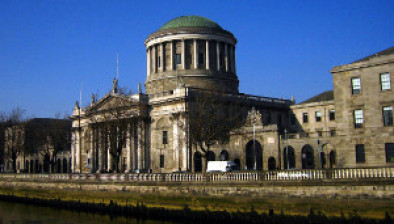High Court: FBD must cover publicans’ losses for early closures and closed bar areas

The High Court has ruled that FBD Insurance plc must pay publicans for losses arising from the early closures of premises which occurred from 10 August 2020 due to the Covid-19 pandemic. In a 201-page judgment, Mr Justice Denis McDonald held that the early closing requirement was a government-imposed closure and therefore fell within the ambit of FBD’s policy.

About this case:
- Citation:[2022] IEHC 39
- Judgment:
- Court:High Court
- Judge:Mr Justice Denis McDonald
It was also held that FBD must also pay publicans for the closure of bar counters during the relevant periods. The court outlined a suggested methodology for the difficult process of calculating losses from bar counter closures. Further, the pubs were partially successful in their claims for staff wages and salaries.
Background
This was the third decision that the High Court delivered in the proceedings. Detailed reports of the first two decisions can be found here and here. The plaintiffs were four pubs, three based in Dublin and one in Athlone. The Athlone-based pub was a “wet pub” and therefore was closed much longer than the other plaintiffs, who served food.
In the first judgment, it was held that business interruption cover was available under the policy in respect of pub closures in March 2020. In the second judgment, the court considered whether FBD’s policy covered the partial closure of a publican’s premises, such as when bar service was limited to takeaway drinks.
The court considered that a closure required the complete shutting down of a premises or part of a premises. However, since no evidence was led in relation to the partial closures of the four plaintiffs’ premises, the court stated that it would hear evidence before reaching any final conclusion. The court also deferred a final decision regarding cases where closure of a discrete part of a premises could not be identified.
A third hearing took place in July 2021, with the parties making submissions on several outstanding issues which arose from the previous judgments. The main issues before the court were 1) whether at the bar counter area in the pubs was subject to imposed closures between 29 June 2020 and 18 September 2020, and between 4 December and 24 December 2020; 2) whether the Dublin pubs were subject to an imposed closure order to close early; 3) whether the plaintiffs were entitled to be indemnified in respect of staff wages during the relevant periods.
High Court
The court began by dealing with the restrictions on the use of the bar counters. FBD accepted that the relevant periods could be treated as subject to the same restrictions on bar service, despite differences in the relevant regulations and guidance documents for the periods. However, FBD maintained that the bar counters were not closed at these times.
It was argued that the bar counters could not be classified as closed where the relevant guidelines specifically envisaged use of the bar counters for preparing drinks. The court rejected this submission, stating that FBD was confusing the concepts of use and closure. The court considered that if any person visiting a pub was asked whether the counters were open, the answer would clearly have been “no.”
The court moved to consider whether the difficulty in estimating the plaintiffs’ losses arising from the closure of the bar counters affected the issue. The court noted that no separate records were kept of bar counter sales, which meant that it was much more difficult to assess the losses. If the losses were not measurable, then they may not be indemnified, the court said.
The court was also concerned by some photographic evidence that the plaintiffs’ bar counters were in use at certain points despite the closure orders. However, it was said that the evidence was not substantial enough to hold that there were ongoing breaches of restrictions.
The court held that carveries which were operated by two of the pubs were not closed because of government-imposed restrictions because they could continue to operate throughout the restrictions. Instead, it was held that the carveries were unsuccessful due to a lower volume of customers in the pandemic.
The court then considered whether the Dublin pubs could claim for losses arising from early closure orders. It was held that the business lost from early closures was significant for the pubs. For example, one of the pubs took in €54 after 11.00 pm in 2020 compared to €7,951 in 2019. It was held that the early closures were prompted solely by the Covid-19 pandemic and resulted in recurring/rolling closures of the pubs. In those circumstances, the court was satisfied that early closures were covered under FBD’s policy.
Difficulties in quantification
Next, the court outlined the principles applicable to quantifying the losses from partial closures. It was stated that the early closure losses could be assessed by reference to the hours lost in 2020 and hourly till receipts for equivalent periods in 2019.
However, assessing the losses from the closed bar counters was significantly more complex. It was stated that the lack of separate records for bar sales created difficulties in disaggregating those sales from other aspects of the pub’s revenue, such as table service or taking drinks to a nearby seat. Bar counter sales were any sales made to customers who stayed at the counter (seated or standing) to drink their beverage.
The experts disagreed on the proper way to calculate any losses from bar counter closures. Several suggested methods of calculation were put forward, although it was accepted that each method had significant frailties or did not account for variables, such as busy periods. The court also noted that there was very limited evidence which might assist in the calculation and the court opined that evidence from an experienced bar staff on the running of the pubs would have been useful.
However, it was held that the court was required to do its best to assess the losses despite the evidence (Biggin v. Permanite [1951] 1 K.B. 422; Ted Baker plc v. Axa Insurance UK plc [2014] EWHC 3548). The court attempted to devise a methodology to estimate the capacity of the bar counter areas and use that as a yardstick to measure loss. It was held that the bar counter area extended to those who were a depth of four people away from the counter, although this would not apply in all cases and would be based on the individual pub’s layout.
The court also suggested that, since the pubs had receipts for when drinks were sold and the quantity, the total figures could be divided by the total capacity of a pub to get an estimate of drink sales per customer. This figure could then be multiplied by the numbers at the bar counter at given times for an estimate of counter sales. The court welcomed any further refinement to the suggested method from the parties.
Staff wages
The court moved to consider whether staff wages were recoverable under the policy. The pubs claimed for both staff that were kept on the payroll and those who were laid off. The issue overlapped with the ongoing issue of the impact of government supports and subsidies.
FBD submitted that the pubs were required to mitigate their losses by reducing wage payroll and any staff wages which were saved could be deducted from any payout. It was also said that the pubs had to make decisions on the assumption that their losses would not be insured (Sheehan v. FBD Insurance Ltd (Supreme Court, unreported, 20 July, 1999)).
The court was required to consider each pub’s case for staff wages individually. In short, the onus was on FBD to show that it was unreasonable to retain individual staff members on the payroll during the relevant periods. In some cases, the evidence established that it was necessary to retain certain employees, but not every claim for employee wages by the pubs was successful. As such, the pubs were partially successful on this issue.
It was held that the pubs were, in principle, not entitled to claim for the wages of laid off staff, even where there were promises to pay them accrued wages in the future. There was no authority provided to the court for the proposition and it was not consistent with the duty to mitigate loss.
Trends and other circumstances
The policy provided that indemnity to the pubs could be adjusted for the trend and other circumstances affecting the business. It was held that “trend” referred to the general financial direction of the pub while “other circumstances” referred to individual events, such as the intake from Euro 2020. One pub had a new deal with CIE Tours to bring tourists into the premises, which was accepted to be an “other circumstance affecting the business”.
The court only dealt with the issue in the abstract and did not make findings of fact on trends or circumstances. The court accepted that a 12-month period was appropriate to measure the trend of the business, which was appropriate to ensure that data was not skewed by seasonal variations. The court also ruled that pop concerts and annual sporting events were not other circumstances which affected the indemnity because they were an ordinary part of life in Dublin, compared to the Ryder Cup or the Rugby World Cup.
Conclusion
The court concluded that the early closure requirement was covered under the FBD policy. Coverage was also available for the closure of bar counters.











